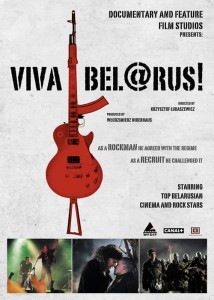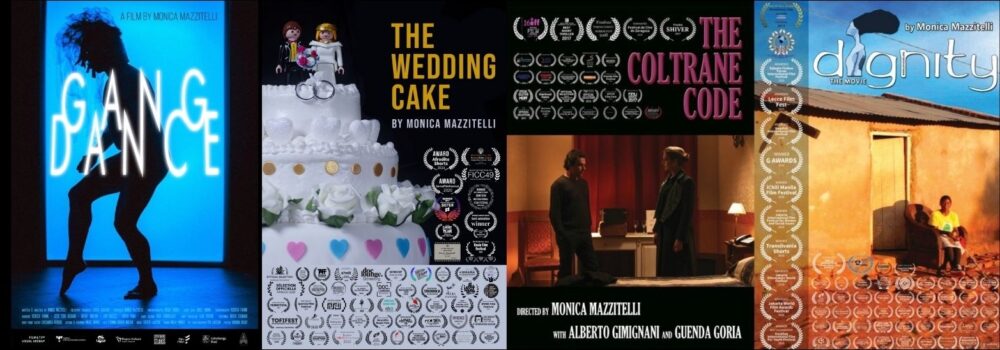 Un festival molto ambizioso per una cittadina così sonnacchiosa.. ma i film erano interessanti.. ne ho scritto per L'Unità. Enjoy.
Un festival molto ambizioso per una cittadina così sonnacchiosa.. ma i film erano interessanti.. ne ho scritto per L'Unità. Enjoy.
Bielorussia: finire in cella per aver fatto un film
Si svolge in questi giorni a Setùbal –carina e sonnacchiosa cittadina vicino Lisbona– un festival ambizioso, Festroia, che è arrivato al traguardo della sua ventinovesima edizione. Internazionale ma una vocazione molto europea, presenta una selezione indipendente e accurata di film scelti con curiosità e apertura, con una ricerca di valore artistico non solo nell’immagine ma anche nei contenuti emotivi. Non a caso ritroviamo sia Mika Kaurismäki, con il suo Road North, che soprattutto lo splendido Into the white, del regista norvegese Petter Næss (che abbiamo intervistato qui), uno dei più probabili e meritevoli vincitori della selezione ufficiale di questo festival, presentati entrambi allo scorso Nordic Film Fest di Roma.
C’è molta attenzione per le produzioni di tutta Europa, con spazio dedicato a paesi che si affacciano al cinema da tempi relativamente brevi (come i paesi della ex Jugoslavia, vincitori della scorsa edizione), o nazioni che non hanno ancora avuto riconoscimenti importanti, come il Belgio, a cui viene dedicato in questa edizione un tributo con ben 18 film, e un omaggio particolare a uno dei suoi attori più prominenti, Jan Decleir.
In concorso nella selezione ufficiale una pellicola molto interessante e coinvolgente sotto il profilo emotivo: The broken circle breakdown di Felix van Groeningen. La storia di una coppia che deve affrontare la malattia della propria bambina facendo i conti, all’interno di un grande amore, con qualcosa di immane che non può che distruggere o salvare. Girato con asciuttezza e sapiente sceneggiatura, con sovrapposizioni temporali e flashback che ne sono forte parte narrativa, declinata con ogni sfumatura dal tragico al comico, è un film molto maturo e scalfente.
Interessantissimo e sicuramente degno di un premio anche il film polacco del regista Krzysztof Lukaszewicz: Viva Belarus, basato in gran parte sulla vita di Franak Viachorka, un attivista politico che dopo essere stato mandato per 15 mesi in reclusione militare a Chernobyl inizia clandestinamente un blog per parlare degli abusi e le torture vissuti in quel contesto, creando un grande sommovimento civile e riuscendo – nonostante le vessazioni subite – a ottenere un regime migliore per gli internati, prendendo poi un ruolo politico. Non si tratta però di un documentario quanto di un film con una forza cinematografica propria e reale, che scaturisce sicuramente dai suoi contenuti ma non solo.
La pellicola è stata presentata a Setùbal dal regista accompagnato dallo stesso Franak Viachorka, ovvero colui al quale la storia è ispirata, che è anche coautore della sceneggiatura, e anche dall’attore protagonista che lo interpreta, Dzmitry Vinsent Papko, che a causa della sua partecipazione al film non può al momento tornare in patria: sì perché questo film, che non ha una distribuzione in Bielorussia ma può essere solo visto clandestinamente, ha avuto un impatto decisamente forte nel Paese, dove è stato osteggiato dall'ex KGB, e le persone coinvolte nella lavorazione hanno subito persecuzioni e arresti. Insomma, un documento interessante raccontato con forza e emozione.
L'articolo è uscito qui, ma con una controbattuta dell'ambasciatore bielorusso qui. Ho ricevuto una risposta "a tono" da parte di Franak Viačorka che però non è stata pubblicata dalla testa. La metto qui, per rispetto.
Dear Monica!
Maybe Mr. Ambassador was happy to find, as it seemed to him, geographical inaccuracy in the text. Of course, Chernobyl is in Ukraine. However, and this should be clear for every Belarusian, we spoke about Chernobyl zone, contaminated with radiation. Belarus took 70% of the fallout from the power plant; one fifth of the country's land was contaminated. More than one million of people live with radiation around them. There are farms, factories, military units as well. Many children are born with diseases. But Mr. Lukashenka ordered to change pollution criteria and announced these territories as accepted for life (therefore foreign humanitarian support is no more needed there). By the way, thousands of Chernobyl children from Belarus passed rehabilitation in Italy before these limitations. Photos from contaminated regions you can find here: http://pressphoto.by/?p=369&lang=en and report here: http://news.bbc.co.uk/2/hi/europe/4485003.stm
Maybe Mr. Ambassador would wish to explain, why these people get help from Italy, Canada, or Britain, how does their own State help?
Military draft in Belarus is used by KGB to isolate youth oppositionists. Zmicier Fedaruk, Zmicier Zhaleznichenka, Ivan Shyla, Michal Muski and many others activists were conscripted in spite of law, mainly by ignoring medical limitations. I was a chairman of BPF Youth organisation, when agents stopped me, harshly beat and took to the unit after rewriting of my medical card. After 15 months, before the term, I was released because of heart disease — the same because of which I could not be conscripted but I was. So army de-facto had to recognize falsification of my diagnoses. It was a result of observers from EU, USA, OSCE coming to Belarus. Lukashenka was obliged to make an “illusion of democracy”. European Parliament: “Reviewing all the cases of forcible conscription which have violated the legal rights of several young activists, such as Franak Viačorka, Ivan Šyla and Zmiter Fedaruk, and which are tantamount to State-practised hostage-taking;” (17.12.2009). You can also read it: http://www.europarl.europa.eu/document/activities/cont/200901/20090130ATT47881/20090130ATT47881EN.pdf
I guess Mr. Ambassador would like to characterize this document of European Parliament as mere propaganda?
And why so many people are in prisons because of their political views? In December 2010 thousands of people were gathered at peaceful manifestation in Minsk after the presidential elections. Thousands were arrested and beaten, 7 of 10 candidates imprisoned, some of them are still being tortured in prison. It is reflected in Viva Belarus! movie. There is Film Sogno Bielorusso in versione italiana about these events: http://www.youtube.com/watch?v=UgKZ7Zn4nzU
I know that events of December 2010 are headache for Belarus diplomacy that is obliged to justify the mass repressions. Is this true, Mr. Ambassador?
Maybe Mr. Ambassador would like to answer why famous rock-musician as Lapis Trubeckoi, and many others cannot perform in Belarus and their songs are forbidden at all FM-radios? http://www.youtube.com/watch?v=t21C09JiRc4
Maybe Mr. Ambassador is right, and Viva Belarus! is so weak movie. So can you recommend the place in Belarus where ordinary viewers and critics can see this movie and estimate its weakness and untruthfulness? Or somebody doesn’t want this movie to be seen by Belarusians?
Here I wrote in Belarusian – language we are not allowed to use in Belarusian army – about army and film truth: http://www.svaboda.org/content/zywie-bielarus-prauda-i-vydumka/24983970.html or here http://www.rferl.org/content/franak-viacorka-viva-belarus/24925295.html
I am happy that Mr Ambassador follows successes of Viva Belarus! The movie produced in 2013 was already screened in Sweden, Poland, Czech Republic, Portugal, Germany, France. Next week Viva Belarus will compete in Brussels film festival. Mr. Shestakov is not the first Ambassador of Belarus who is deeply concerned with the film. It's interesting that Belarus ambassadors in different countries speak about the film with the same words. Ambassador in Poland claimed Polish Government to stop distribution at all.
I am also deeply concerned that the movie about Belarus and in Belarusian language got recognition in different countries, but Belarusians are not able to watch it
I also think that really patriotic is NOT justify the disgusting things that are happening in the country but fight to make it free, fair, Belarusian and European.
Franak Viacorka,
co-author of the screenplay
activist and journalist
